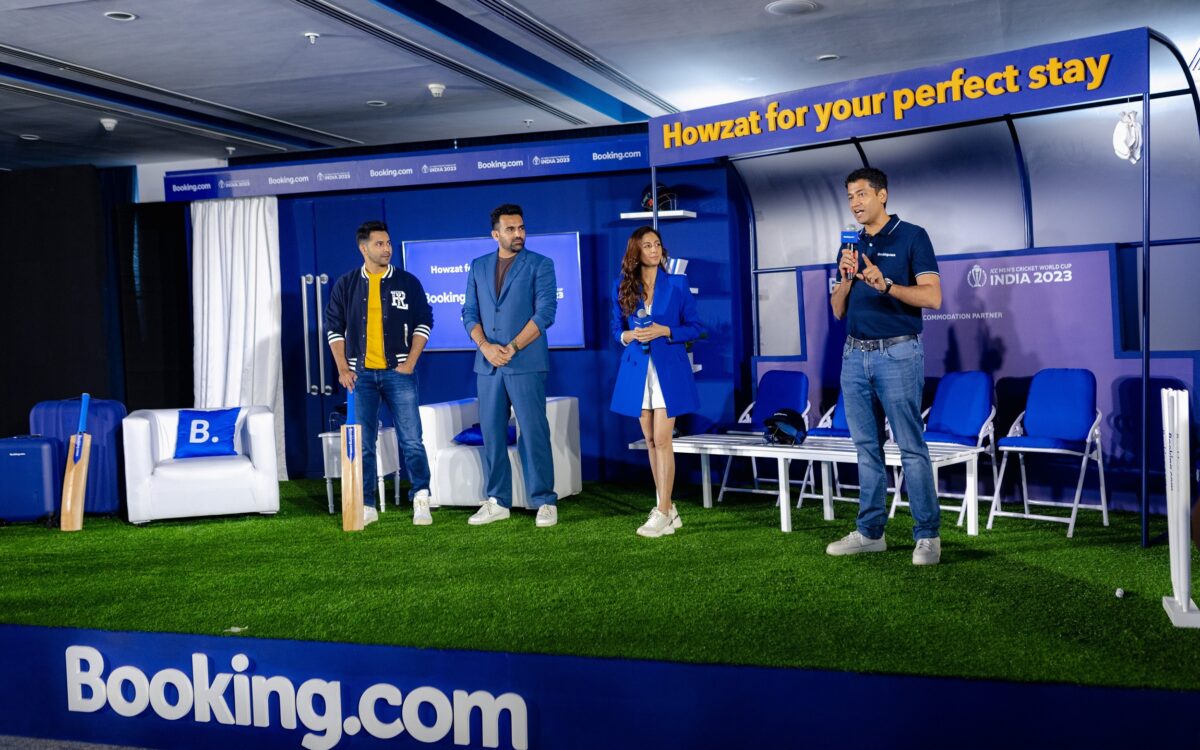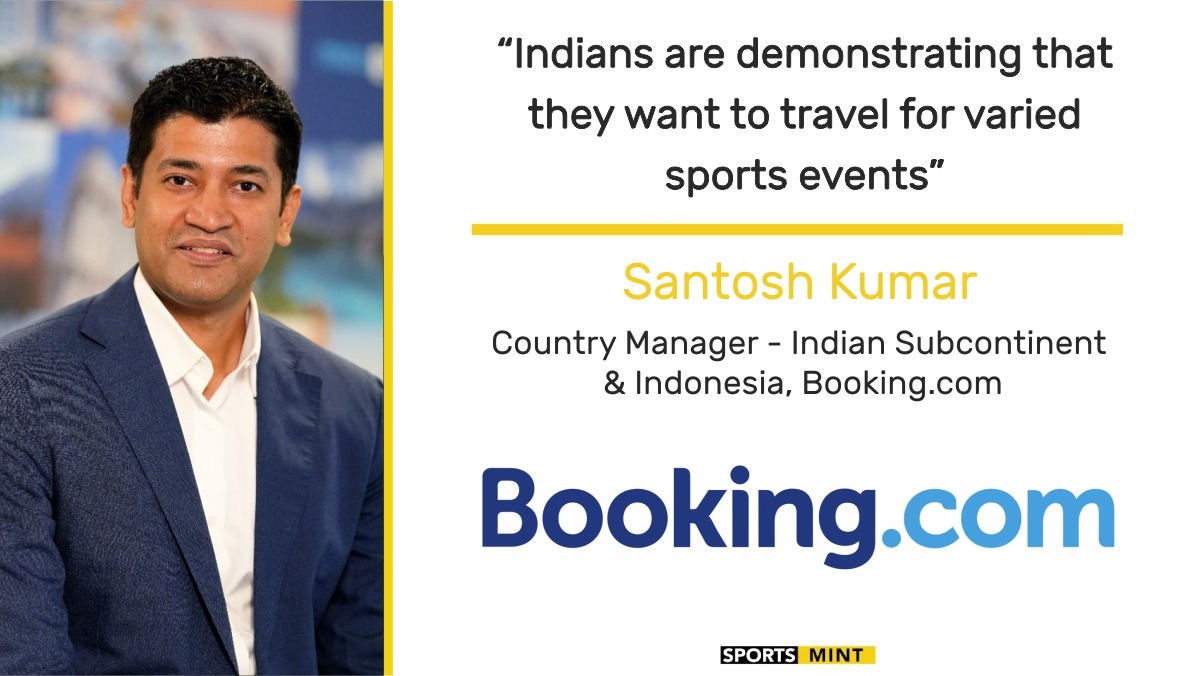With the enthralling ICC Men’s Cricket World Cup 2023 at its business end, along with some engrossing games, cricket enthusiasts also witnessed multiple businesses lay their cards to leverage the competition as partners.
Booking.com, one of the renowned digital travel platforms, has been in association with the International Cricket Council (ICC) since 2019 and so far the arrangement has covered multiple multi-team cricketing events.
Well-versed with varied activations surrounding sports throughout the agreement, leading up to the ongoing World Cup, Booking.com came up with several vital updates. Just before the commencement of the World Cup, Booking.com announced Rohit Sharma as its global brand ambassador for the ongoing tournament. The brand also unveiled an ad campaign named, ‘Howzat for Your Perfect Stay’ for the summit cricket competition.

SportsMint Media conducted an exclusive interview with Mr Santosh Kumar, Country Manager – Indian Subcontinent & Indonesia, Booking.com.
Mr Santosh elaborated on the enhancement of the sports tourism industry in India, Booking.com’s business model, marketing shifts from the previous World Cup and much more.
1. How significant will be the growth of the sports tourism industry in India due to the increase in homegrown sports competitions?
I think sports tourism in India is still in its emerging stages. IPL is an established league, and it has emerged as one of the top sporting leagues in the world. But it’s great to see leagues coming from other sports like football, kabaddi or badminton.
The sports tourism industry in India is still about 37 million USD, but it’s a number that is going at a rapid pace. There’s a double-digit growth expected for the upcoming few years to come. We are still a small market as compared to markets like the US or any other Western countries.
But I’m very positive about how this industry will grow and I think, in general, Indians are demonstrating that they want to travel for such events. The second aspect is that they are willing to spend a little bit of a premium as well. Because despite prices going up, the demand is still robust.
People are not trading down, if they were staying at a five-star hotel before, they will continue to stay at five-star. But it’s also leading to a rise in alternate accommodation segments. So, overall, I think it’s an industry that is still in an emerging space but will continue to grow very rapidly.
2. Is there any specific set of consumers that Booking.com targets in terms of sports tourism?
I don’t think there’s any specific demographic, as such, that we are targeting because every event tends to attract its own audience. But I also think the nature of how people travel and consumers consume sports in India is changing. Like with the IPL, it attracts women, senior citizens, and a young audience because cricket attracts audiences of all types of genders and demographics.
3. What is the major difference between the ongoing World Cup and the previous World Cup that was in England? What marketing shifts did you witness?
I think we are seeing more and more of the rise of social media, that’s number one. The way people consume content has changed quite significantly. Also, we have to take into account that there is a lot of cricket that’s played here. Until a few days before the World Cup, India was playing against Australia. Just before the World Cup, also, I was asked that is it timely what you’re doing now.
Today, people’s patience level has come down, and people want to consume content there and then. So you have to be timely in your marketing promotions that you do and the type of content and campaign that you run also has to sync with that. In the previous edition, we can take the example of TikTok which was relevant back then. But now, it is not relevant in today’s time, you might have to do more on YouTube, Instagram, or Google, so you have to be more relevant to the country in which you’re operating.
4. How do brand activations differ due to differences in geographical locations of the competitions taking place across the globe?
It might differ in terms of the ambassador we use, the type of campaign that we run or the other types of channels that we use, so it will all factor into what is used in each country. It could also vary based on the predominant way that consumers are accessing content, nowadays.
5. Could you please elaborate on the business model of Booking.com?
Very simple, we list accommodations. For every accommodation that’s booked by a consumer, we earn a commission directly from the accommodation provider.
6. Apart from having multi-year sponsorship ties with ICC, does Booking.com aim for partnerships with different sports leagues in the context of travelling?
We haven’t done anything else outside of some of these bigger events. As a company, we are very focused on mega-events which are driving a lot of eyeballs. I’m not saying we won’t indulge in any targeted or smaller events because as we get more focused on a particular country, or a particular geography, we might do that. So far we have not done it, but would love to do something like that from an Indian perspective as well.

